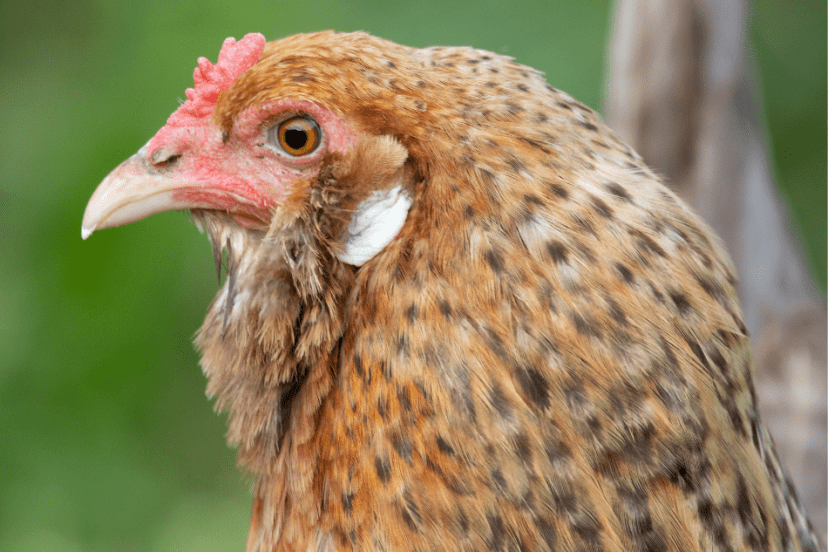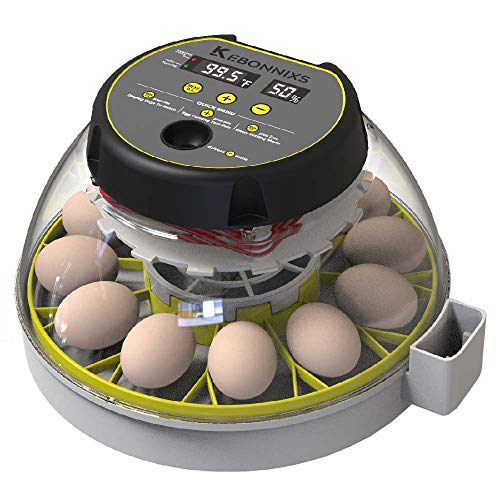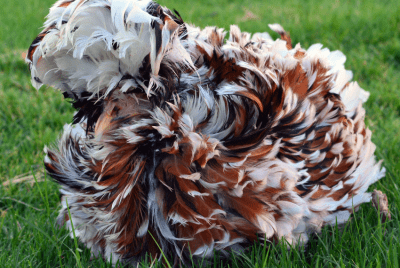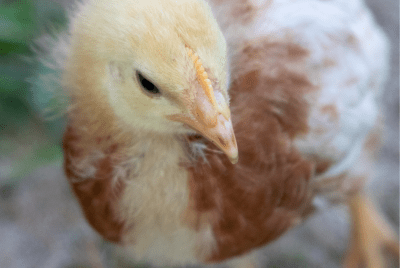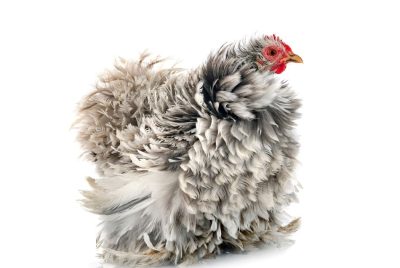Olive Egger Chickens
Olive Egger Chickens
Over the years, Olive Egger chickens have gained popularity among poultry enthusiasts for their unique ability to lay colored eggs. These hybrid chickens are created by crossing an Araucana rooster with any other hen carrying the blue dye gene, resulting in offspring hens that lay eggs in various shades of green, olive, or blue. This fascinating genetic combination not only adds a visually appealing element to your egg basket but also showcases the diverse and intriguing world of chicken breeding. In this blog post, we will explore the origins of Olive Egger chickens and explore the science behind their egg coloration, providing insight into how you can incorporate these charming birds into your flock.
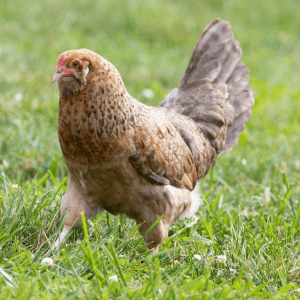
Key Takeaways:
- Olive Egger Chickens: Created by breeding an Araucana rooster with any other hen.
- Blue Dye Gene: The gene responsible for the unique blue color of the eggs laid by Olive Egger hens.
- Passing on Traits: The blue dye gene is passed onto offspring hens, resulting in colored eggs.
- Colorful Eggs: Olive Egger hens lay eggs in various shades of blue, green, and even olive tones.
- Interesting Genetic Combination: The breeding process of Olive Egger chickens involves a specific genetic combination to produce the desired egg color.
History of Olive Egger Chickens
Origins of the Breed
Assuming the context of Olive Egger chickens, these unique birds are created by crossing an Araucana rooster with any other hen carrying the blue egg gene. This results in offspring hens that lay colored eggs, a trait passed on from the Araucana rooster.
The Development Over Time
One interesting aspect of Olive Egger chickens is how they have evolved and improved over time. Breeders have worked to enhance the egg colors and overall health of these birds, resulting in high-quality, sought-after breeds that boast not only their unique appearance but also their robust genetics.
Time: These chickens have gained popularity for their colored eggs, with the Olive Egger breed becoming increasingly recognized and cherished among poultry enthusiasts around the world.
Characteristics of Olive Eggers
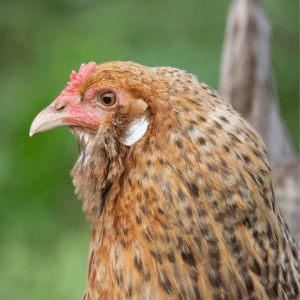
Physical Traits
Your Olive Egger chickens typically exhibit a mix of traits from their parent breeds, such as the fluffy cheeks of Araucanas and the pea combs of other hens. Their unique appearance often includes a variety of plumage colors, including shades of black, brown, and gray.
The Spectrum of Olive Shades
On any given day, you may find Olive Egger hens laying eggs in a spectrum of olive shades, ranging from light pastel greens to deep mossy hues. The blue dye gene, passed on by an Araucana rooster to the offspring hens, contributes to the beautiful range of colors.
Any Olive Egger hen’s eggs with shades of olive are a result of the genetic combination of the Araucana rooster and another breed of hen. It is fascinating to see how the blue dye gene interacts with the genetic makeup of the hens, producing these delightful colored eggs.
I used to mate my Araucana Rooster with many different hens and the results were always really amazing. You can get so many different looking hens. And, the resulting egg color depends on what the natural egg color of that particular breed of hen you start with. If the original hen breed lays very light colored eggs you will get a blue hue colored egg. Then the darker the original color of that breed of hen the more deeper the olive color your will get in the resulting egg. It is a fun adventure and worth trying. If you are into breeding and hatching chicks – Have a go.
Temperament and Behavior
It is important to note that Olive Eggers are known for their friendly and inquisitive nature. They are relatively docile and get along well with other flock members, making them a great addition to your backyard chicken coop. Whether they are foraging for snacks or dust bathing in the yard, Olive Eggers are a joy to observe.
Why Choose Olive Eggers for Your Flock?
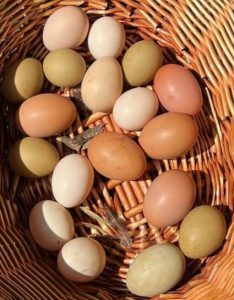
Egg Production Qualities
Many poultry enthusiasts opt for Olive Egger chickens in their flock for their unique egg-laying capabilities. These birds are a result of crossing an Araucana rooster with any other hen carrying the blue dye gene, resulting in offspring hens that lay colored eggs. The vibrant eggs are not only visually appealing but also offer a fun surprise each morning.
Environmental Adaptability
Flock owners appreciate Olive Eggers for their remarkable adaptability to diverse climates and environments. One key characteristic that sets these chickens apart is their ability to thrive in various conditions, making them a suitable addition to any backyard or farm setting.
For instance, Olive Eggers have been known to withstand both hot summers and cold winters, making them a reliable choice for poultry keepers in regions with fluctuating weather patterns.
The Joy of Diversity in the Coop
Environmental enrichment is a crucial aspect of raising happy and healthy chickens. By introducing Olive Eggers to your flock, you not only add a pop of color to your egg cartons but also promote diversity within your coop. Olive Eggers bring a sense of excitement and variety to your flock, making egg-collecting an enjoyable experience for poultry owners.
Caring for Olive Eggers
Housing Needs and Preferences
One important aspect of caring for Olive Eggers is providing them with suitable housing. These chickens prefer a well-ventilated coop with nesting boxes for laying their colored eggs. Make sure the coop is predator-proof and provides enough space for the chickens to move around comfortably.
Diet and Nutrition Essentials
Olive Eggers require a balanced diet to support their egg production. With a diet rich in protein, they will continue to lay colorful eggs consistently. Supplementing their feed with blue dye gene can enhance the vibrancy of the egg colors, making them even more appealing.
Veterinary care is vital for maintaining the health of Olive Egger chickens. Regular check-ups with a poultry veterinarian can help identify and treat any potential health issues before they become serious. It is important to monitor the health of your Olive Eggers closely and seek professional advice if you notice any concerning symptoms.
Breeding Olive Egger Chickens
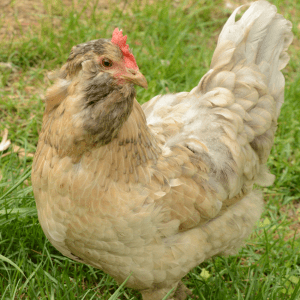
Selecting Breeding Stock
Despite the somewhat complex genetics involved in producing Olive Egger chickens, breeding them can be a rewarding experience. When choosing breeding stock, look for Araucana roosters and hens with the blue dye gene. These characteristics will increase the likelihood of offspring laying colored eggs.
Breeding Tips and Best Practices
To ensure successful breeding of Olive Eggers, it’s important to follow some key tips and best practices. Use a well-maintained breeding pen, provide your chickens with high-quality feed, and monitor the health and well-being of your birds regularly. Any potential risks should be addressed promptly to ensure a successful breeding program.
- Ensure a well-maintained breeding pen
- Provide high-quality feed
- Monitor the health and well-being of your birds regularly
This will help create an optimal environment for successful breeding and healthy chicks. Stock up on necessary supplies, such as nutritious feed and clean bedding, to support the breeding process effectively.
Understanding Egg Color Genetics
Stock up on necessarys like a nutritionally balanced diet for your breeding stock, necessary for healthy egg production. Understanding the genetics behind egg color in Olive Eggers can help you predict the colors of the eggs your hens will lay. Practices that promote efficient health and egg-laying behaviors can improve the overall productivity and well-being of your flock.
Raising Olive Egger Chicks
Incubation and Hatching
All Olive Egger chicks start their journey in the incubator where the magic of hatching takes place. The process is crucial for ensuring a successful hatch, as proper temperature and humidity levels need to be maintained throughout.
Chick Care and Brooder Setup
Incubation is just the beginning of the journey. Once the chicks hatch, they require proper care and a warm, safe environment. Setting up a brooder with the right heat lamp, bedding, and feeder/waterer is crucial for their growth and development.
It is important to pay attention to their behavior and make sure they are eating, drinking, and staying warm. Introducing them to their new surroundings gradually will help reduce stress and ensure they thrive.
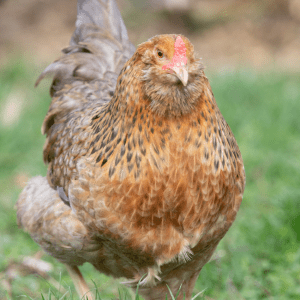
Integration With Other Flock Members
On reaching the right age, integration with the rest of the flock is necessary. Olive Egger chicks may exhibit some caution and hesitation in the beginning, but with time, they will adapt and find their place within the flock.
Maintenance and Daily Care
Routine Coop Maintenance
Unlike other chicken breeds, Olive Egger chickens require minimal maintenance, making them a great choice for beginners. With regular coop cleanings, ensuring proper ventilation, and checking for any signs of illness among the flock, you can keep your Olive Eggers healthy and happy.
Proper Feeding Schedules
One imperative aspect of caring for Olive Egger chickens is maintaining a proper feeding schedule. These chickens are known for laying colored eggs due to the genetic inheritance of the blue dye gene from the Araucana rooster. It is important to provide them with a balanced diet that includes a good quality layer feed, supplemented with fresh fruits and vegetables, and access to clean water at all times.
Care must be taken to avoid overfeeding as this can lead to obesity and potential health issues. Consulting with a poultry nutritionist can help tailor a feeding program specific to your Olive Egger chickens’ needs.
Egg Collection and Cleaning Procedures
Maintenance of the coop also includes regularly collecting eggs to prevent any breakages or soiling. After collecting the eggs, it is imperative to clean them properly to remove any dirt or debris. This not only ensures the eggs stay fresh but also helps maintain the overall cleanliness of the coop.
Understanding the importance of proper care and maintenance is crucial in keeping your Olive Egger chickens healthy and ensuring a consistent supply of colorful eggs.
Overcoming Challenges
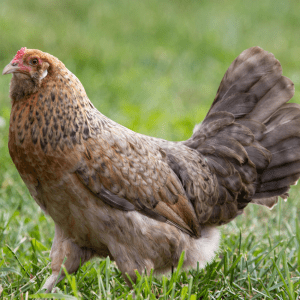
Predator Safety Measures
Challenges may arise in keeping your olive egger chickens safe from predators. Installing a secure coop with sturdy fencing can help protect your flock from potential threats such as foxes, raccoons, and birds of prey. Consider adding predator-proof locks and ensuring the coop is well-lit at night to deter nocturnal predators.
Handling Weather Sensitivity and Extremes
Overcoming weather challenges is crucial in ensuring the health and well-being of your olive egger chickens. Extreme temperatures can be particularly challenging, so providing adequate shelter, ventilation, and access to fresh water at all times is important. Consider insulating the coop during colder months and providing shade during hot summers to help your chickens regulate their body temperature effectively.
It is important to monitor the weather forecast regularly and adjust your chicken care routine accordingly. Keep an eye out for signs of heat stress or frostbite in your flock, and take immediate action to keep them comfortable and healthy.
Common Health Concerns and Remedies
Remedies for common health concerns in olive egger chickens include regular health checks, proper nutrition, and hygiene practices. Look out for symptoms of respiratory infections, parasites, and egg-related issues, and consult a veterinarian if necessary. Ensuring your chickens have access to a balanced diet and clean living conditions can help prevent many health problems from occurring.
To protect the overall health of your olive egger chickens, implementing a vaccination program and practicing good biosecurity measures can help minimize the risk of disease outbreaks. Keep in mind, prevention is key in maintaining a happy and healthy flock of olive eggers.
Olive Eggers in Urban Backyards
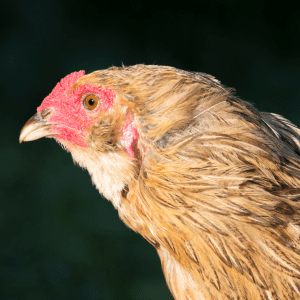
Meeting Urban Space Constraints
Any backyard can be transformed into a bustling haven for Olive Egger chickens, even in the constraints of urban environments. With the right setup and care, these unique chickens can thrive and provide beautiful colored eggs for their owners.
Navigating Community and Legal Considerations
The presence of Olive Egger chickens in urban backyards can sometimes raise concerns among neighbors or city regulations. The key is to educate and communicate openly with those around you about the benefits and practices of raising these chickens. By following local ordinances and being a responsible owner, any potential issues can be easily resolved.
With proper communication and understanding, most neighbors appreciate the benefits of having Olive Egger chickens in the community. They not only provide fresh eggs but also contribute to sustainability efforts and localize food production.
Engaging with the Urban Chicken Movement
Engaging with the urban chicken movement can open up a world of resources, support, and information for Olive Egger chicken owners. Community events, online forums, and local groups can provide valuable insights and connections to other like-minded individuals.
Movement: Embracing the urban chicken movement can lead to a fulfilling and sustainable chicken-raising experience. By connecting with fellow enthusiasts, sharing knowledge, and advocating for responsible chicken ownership, a positive impact can be made on urban environments and local food systems.
Ultimately
For those curious about the unique and colorful eggs laid by Olive Egger chickens, the fascinating breeding process involving an Araucana rooster, the blue dye gene, and any other hen is what makes these chickens so special. As a result, the offspring hens inherit the blue egg gene and produce eggs with hues ranging from olive green to deep teal. To learn more about Olive Egger chickens, visit Alchemist Farm’s website for a closer look at these delightful and charming birds!
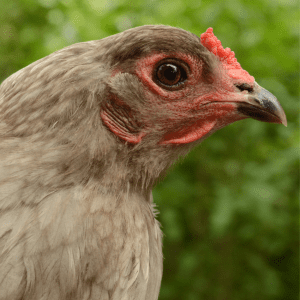
Frequently Asked Questions (FAQ) – Olive Egger Chickens
Q: What are Olive Egger Chickens?
A: Olive Egger chickens are a unique hybrid breed created by crossing a dark brown egg layer (such as a Marans or Welsummer hen) with a blue egg layer (usually an Araucana or Ameraucana rooster). This breeding combination results in hens that lay olive-colored eggs.
Q: How do Olive Egger Chickens get their distinct egg color?
A: The blue egg gene carried by the Araucana or Ameraucana rooster is responsible for the unique olive egg color. When this gene is passed on to the offspring hens from the breeding process, they lay eggs with a beautiful olive hue.
Q: Are Olive Egger Chickens good egg layers?
A: Olive Egger chickens are typically good layers, producing eggs with varying shades of olive green. They are not as prolific as some commercial egg-laying breeds but still provide a steady supply of colorful and delicious eggs.
Q: Do Olive Egger Chickens require special care?
A: Olive Egger chickens do not require any special care compared to other chicken breeds. They thrive in backyard settings, enjoying a diet of quality feed, fresh water, and access to outdoor space for foraging.
Q: Can I hatch Olive Egger chicks from Olive Egger hens?
A: Yes, Olive Egger hens can hatch Olive Egger chicks. The blue egg gene passed down from the rooster ensures that the offspring hens will continue to lay olive-colored eggs. This will maintain the unique trait of the Olive Egger breed.
Chicken Tractor for your Flock
Keep flies our of your Chicken Coop

